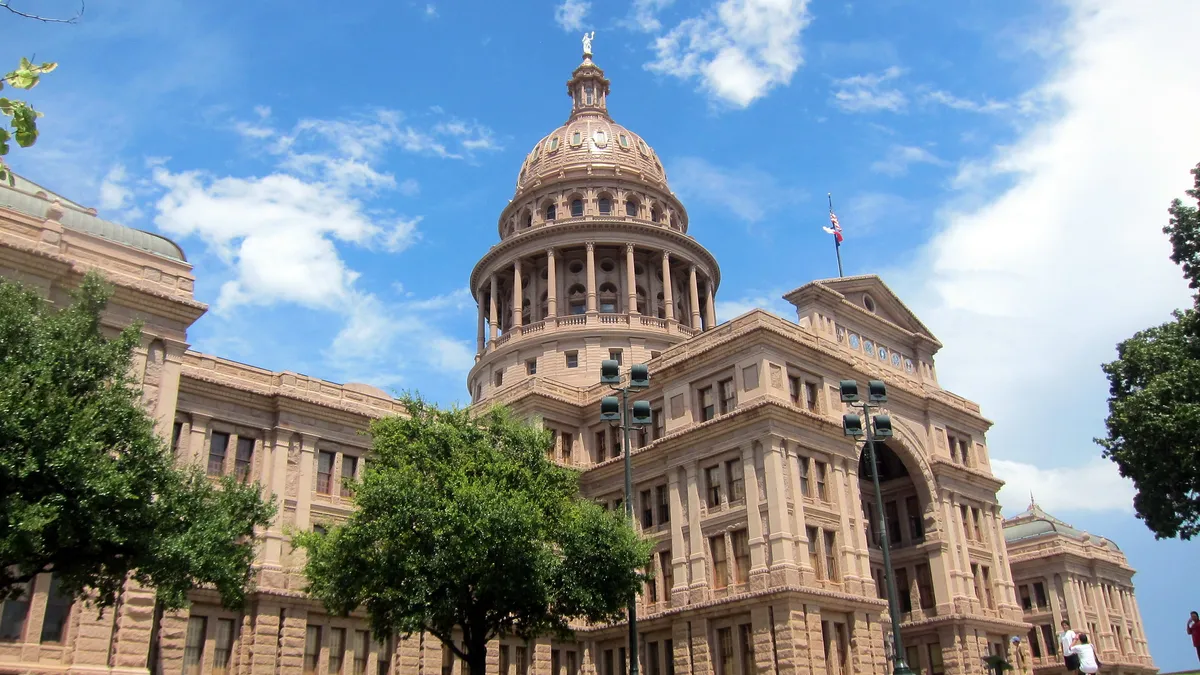Texas became the latest state Wednesday to ban diversity, equity and inclusion efforts at its public colleges, in line with a national campaign by conservatives to ax DEI programs they say have drifted from their original intent and into divisive territory.
Gov. Greg Abbott, a Republican, signed the hot-button legislation enacting the most sweeping higher ed DEI prohibition in the country, according to the bill’s sponsor, state Sen. Brandon Creighton, also a Republican. In greenlighting the law, the Texas Legislature rejected pleas from faculty, DEI employees and students to preserve practices they say lift up the most marginalized populations on college campuses.
College DEI offices in fact first emerged to acknowledge that higher education has not always helped these groups. But Republicans nationwide have derided diversity efforts as discriminatory and tried to end them through legislation. Florida’s governor signed a bill last month outlawing DEI spending in public colleges, the first state to do so.
Creighton, in a statement Wednesday, said Texas colleges’ DEI wings have mandated “political litmus tests” and have not actually advanced diversity.
“With this bold, forward-thinking legislation to eliminate DEI programs, Texas is leading the nation, and ensuring campuses return to focusing on the strength of diversity and promoting a merit-based approach where individuals are judged on their qualifications, skills, and contributions,” Creighton said.
Under the law, which takes effect in January, Texas public colleges cannot create diversity offices, hire DEI employees, or mandate DEI training as a condition for a job or being admitted to an institution.
Hiring practices must be “color-blind and sex-neutral,” and public colleges can’t ask job candidates for written statements on how they support diversity.
These diversity statements have fallen out of favor in conservative circles, whose members liken them to ideological oaths. Some public colleges and systems have banned diversity statements under this political pressure, with the Texas A&M University System doing so in March.
College governing boards will need to craft policies to punish those who violate the rules, the law states. And administrators can’t tap into state spending until they have declared they are in compliance with the law. The law expressly says colleges should meet all requirements under federal law.
Further, the Texas Higher Education Coordinating Board, a state agency overseeing postsecondary policy, must conduct a study every two years, until 2029, tracking how the legislation has affected student application, acceptance, retention and graduation rates disaggregated by sex, race and ethnicity.
The law does allow faculty to research and discuss diversity in their instruction. It also does not apply to student organizations and outside speakers, or to “data collection” and “student recruitment or admissions.”
Texas faculty have publicly warned that institutions could lose out on federal grants that ask applicants to demonstrate how they incorporate DEI into their work.
However, the law allows for grant applicants and administrators seeking to comply with accreditor standards to provide statements outlining how they have helped first-generation, low-income or underserved college students.
Texas’ branch of the American Association of University Professors said on social media Wednesday that the bill signing “was a sad day” for state higher ed, but added that the organization would continue fighting for DEI efforts.
Abbott also signed a bill Wednesday largely cementing current tenure processes into law, according to Creighton’s office. While initially the legislation was proposed as a ban on tenure in public colleges, concerns arose that such a prohibition would dissuade talented faculty from seeking jobs.










